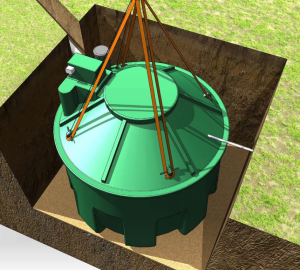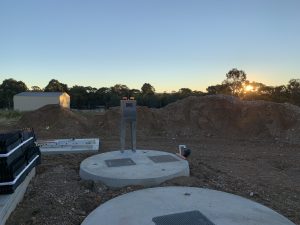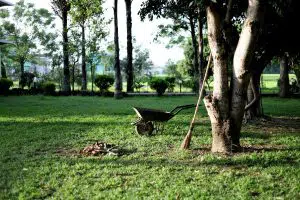Exploring the Diverse Applications of Treated Wastewater
Introduction
Treated wastewater, also known as reclaimed water or recycled water, refers to wastewater that has undergone various treatment processes to remove impurities and contaminants. This reclaimed water can be repurposed for a wide range of applications, benefiting both the environment and society. In this article, we will delve into the different uses of treated wastewater and explore how it contributes to sustainable water management.
Agricultural Irrigation
One of the primary uses of treated wastewater is for agricultural irrigation. Reclaimed water can be safely used to irrigate crops, providing a reliable and sustainable water source. The nutrients present in the treated wastewater can also serve as fertilisers, promoting plant growth and reducing the need for additional chemical fertilisers.
Industrial Processes
Treated wastewater finds extensive use in various industrial processes. Many industries require large volumes of water for cooling, manufacturing, and cleaning purposes. By utilising treated wastewater, industries can conserve freshwater resources and reduce the strain on local water supplies. Proper treatment ensures that the reclaimed water meets the required quality standards for these industrial applications.
Urban and Landscape Irrigation
Another significant application of treated wastewater is urban and landscape irrigation. Reclaimed water can be used for watering public parks, golf courses, gardens, and other recreational areas. By using treated wastewater for irrigation, communities can conserve freshwater resources for essential purposes and reduce the demand for potable water.
Groundwater Recharge
Treated wastewater can be utilised for groundwater recharge, a process that replenishes underground water reserves. Through infiltration or direct injection, reclaimed water can help replenish aquifers and prevent the depletion of groundwater resources. This method is particularly beneficial in areas facing water scarcity, as it provides a sustainable solution for recharging groundwater levels.
Environmental Enhancement
Treated wastewater plays a vital role in environmental enhancement. In regions where water bodies, such as rivers or wetlands, are facing ecological stress, treated wastewater can be discharged into these areas. The additional water flow can help restore and maintain the ecological balance, supporting aquatic life and preserving natural habitats.
Toilet Flushing
Reclaimed water is also used for toilet flushing in certain settings. Dual plumbing systems can be implemented in buildings, allowing the use of treated wastewater for flushing toilets while using freshwater for other purposes. This reduces the demand for freshwater, particularly in commercial buildings, and helps conserve water resources.
Non-Potable Uses in Residential Areas
In residential areas, treated wastewater can be utilised for non-potable purposes such as outdoor cleaning, car washing, and gardening. By incorporating separate distribution systems for treated wastewater, communities can save freshwater resources and ensure a sustainable water supply for these activities.
Potential for Drinking Water
Advanced treatment technologies and rigorous monitoring allow treated wastewater to meet stringent water quality standards, raising the possibility of using it as a source of drinking water. While the concept of drinking recycled water may be met with skepticism, several regions have successfully implemented advanced purification processes to transform treated wastewater into potable water. This approach not only helps alleviate water scarcity but also promotes water resilience and reduces reliance on traditional water sources.
Recreational Uses
Treated wastewater can be utilised for recreational purposes, such as filling artificial lakes or ponds in parks and recreational areas. These water bodies provide opportunities for activities like boating, fishing, and swimming. By using reclaimed water for recreational purposes, communities can conserve freshwater resources for essential needs while still offering enjoyable outdoor experiences for residents and visitors.
Fire Protection
Another important application of treated wastewater is for fire protection. Fire hydrants and sprinkler systems can be connected to separate distribution systems that utilise reclaimed water. This ensures an ample supply of water for firefighting purposes without placing additional strain on the freshwater supply. Treated wastewater’s availability for fire protection enhances public safety and emergency response capabilities.
Power Generation
Treated wastewater can also be used in power generation facilities, particularly for cooling purposes in thermal power plants. The high water demand of power generation can be met by utilising reclaimed water, reducing the need for freshwater extraction from rivers or other sources. By incorporating treated wastewater in the cooling process, power plants contribute to water conservation efforts and minimise their environmental impact.
Construction and Dust Control
During construction activities, treated wastewater can be utilised for dust control. Water trucks equipped with spraying systems can use reclaimed water to suppress dust particles, minimising air pollution and improving air quality in construction sites. This practice not only ensures compliance with environmental regulations but also conserves freshwater resources that would otherwise be used for dust control.
Challenges and Considerations
While the various uses of treated wastewater offer significant benefits, there are challenges and considerations that need to be addressed. Proper treatment and monitoring are essential to ensure the water quality meets the required standards for each specific application. Additionally, public acceptance and awareness play a crucial role in promoting the safe and sustainable use of reclaimed water. Comprehensive regulations and guidelines must be in place to govern its usage and safeguard public health and the environment.
Conclusion
Treated wastewater provides a versatile and sustainable water resource that can be utilised in numerous applications. From agricultural irrigation and industrial processes to urban landscaping and groundwater recharge, the diverse uses of reclaimed water contribute to efficient water management and conservation efforts. By embracing the potential of treated wastewater, communities can alleviate water scarcity, reduce reliance on freshwater sources, and foster a more sustainable and resilient future.
Agricultural Irrigation
One of the primary uses of treated wastewater is for agricultural irrigation. Reclaimed water can be safely used to irrigate crops, providing a reliable and sustainable water source. The nutrients present in the treated wastewater can also serve as fertilisers, promoting plant growth and reducing the need for additional chemical fertilisers.
Industrial Processes
Treated wastewater finds extensive use in various industrial processes. Many industries require large volumes of water for cooling, manufacturing, and cleaning purposes. By utilising treated wastewater, industries can conserve freshwater resources and reduce the strain on local water supplies. Proper treatment ensures that the reclaimed water meets the required quality standards for these industrial applications.
Urban and Landscape Irrigation
Another significant application of treated wastewater is urban and landscape irrigation. Reclaimed water can be used for watering public parks, golf courses, gardens, and other recreational areas. By using treated wastewater for irrigation, communities can conserve freshwater resources for essential purposes and reduce the demand for potable water.
Groundwater Recharge
Treated wastewater can be utilised for groundwater recharge, a process that replenishes underground water reserves. Through infiltration or direct injection, reclaimed water can help replenish aquifers and prevent the depletion of groundwater resources. This method is particularly beneficial in areas facing water scarcity, as it provides a sustainable solution for recharging groundwater levels.
Environmental Enhancement
Treated wastewater plays a vital role in environmental enhancement. In regions where water bodies, such as rivers or wetlands, are facing ecological stress, treated wastewater can be discharged into these areas. The additional water flow can help restore and maintain the ecological balance, supporting aquatic life and preserving natural habitats.
Toilet Flushing
Reclaimed water is also used for toilet flushing in certain settings. Dual plumbing systems can be implemented in buildings, allowing the use of treated wastewater for flushing toilets while using freshwater for other purposes. This reduces the demand for freshwater, particularly in commercial buildings, and helps conserve water resources.
Non-Potable Uses in Residential Areas
In residential areas, treated wastewater can be utilised for non-potable purposes such as outdoor cleaning, car washing, and gardening. By incorporating separate distribution systems for treated wastewater, communities can save freshwater resources and ensure a sustainable water supply for these activities.
Potential for Drinking Water
Advanced treatment technologies and rigorous monitoring allow treated wastewater to meet stringent water quality standards, raising the possibility of using it as a source of drinking water. While the concept of drinking recycled water may be met with scepticism, several regions have successfully implemented advanced purification processes to transform treated wastewater into potable water. This approach not only helps alleviate water scarcity but also promotes water resilience and reduces reliance on traditional water sources.
Recreational Uses
Treated wastewater can be utilised for recreational purposes, such as filling artificial lakes or ponds in parks and recreational areas. These water bodies provide opportunities for activities like boating, fishing, and swimming. By using reclaimed water for recreational purposes, communities can conserve freshwater resources for essential needs while still offering enjoyable outdoor experiences for residents and visitors.
Fire Protection
Another important application of treated wastewater is for fire protection. Fire hydrants and sprinkler systems can be connected to separate distribution systems that utilise reclaimed water. This ensures an ample supply of water for firefighting purposes without placing additional strain on the freshwater supply. Treated wastewater’s availability for fire protection enhances public safety and emergency response capabilities.
Power Generation
Treated wastewater can also be used in power generation facilities, particularly for cooling purposes in thermal power plants. The high-water demand of power generation can be met by utilising reclaimed water, reducing the need for freshwater extraction from rivers or other sources. By incorporating treated wastewater in the cooling process, power plants contribute to water conservation efforts and minimise their environmental impact.
Construction and Dust Control
During construction activities, treated wastewater can be utilised for dust control. Water trucks equipped with spraying systems can use reclaimed water to suppress dust particles, minimising air pollution and improving air quality in construction sites. This practice not only ensures compliance with environmental regulations but also conserves freshwater resources that would otherwise be used for dust control.
Challenges and Considerations
While the various uses of treated wastewater offer significant benefits, there are challenges and considerations that need to be addressed. Proper treatment and monitoring are essential to ensure the water quality meets the required standards for each specific application. Additionally, public acceptance and awareness play a crucial role in promoting the safe and sustainable use of reclaimed water. Comprehensive regulations and guidelines must be in place to govern its usage and safeguard public health and the environment.
Conclusion
Treated wastewater provides a versatile and sustainable water resource that can be utilised in numerous applications. From agricultural irrigation and industrial processes to urban landscaping and groundwater recharge, the diverse uses of reclaimed water contribute to efficient water management and conservation efforts. By embracing the potential of treated wastewater, communities can alleviate water scarcity, reduce reliance on freshwater sources, and foster a more sustainable and resilient future.
Eco-Septic is a Sydney based manufacturer and specialises in commercial wastewater systems of various shapes and designs. We can provide fast and free quotes relevant to your commercial wastewater needs, all while keeping in mind individual spending capabilities.
Contact us today for a fast quote at 1800 808 135 or visit us at www.ecoseptic.com.au.
We cover all Sydney suburbs as well as the regions of South Coast, Snowy Mountains, Southern Highlands, Riverina, Blue Mountains and Hawkesbury, Laguna, North and Mid North Coast, Bateman’s Bay, Nowra, Mallacoota, Narooma, Balmoral, Cobargo, Glenn Ines, Avondale, Glenmore, Mogo, Targao, Torrumbarry, Albury, Faulconbridge, Maraylya, Sherbrooke, Strathdickie, Little Hartley, Linden, cattail, Bowen Mountain, Murwillumbah, Kyogle, Bryon Bay, Lismore, Evan Heads, Yamba, Grafton and surrounding areas.
Related Posts
- What Are The Three Types Of Pump Wells?
- Why Are There Heavy Metals In Sewage Sludge?
- What Is A Pump Station or Pump Well?
- The Cost of Maintaining Septic Tanks
- How Much Sewage Is Produced Per Person?
- ECN10-1 aerated wastewater treatment system (awts) domestic model
- Keeping Up With The Latest Technology In Wastewater
- Septic Tank Regulations in Sydney: What Homeowners Need to Know





